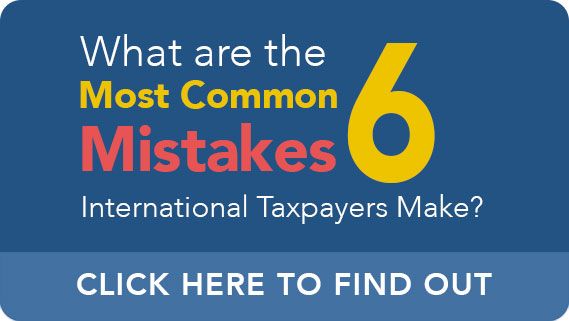Accountant for Americans Who Own Real Estate Overseas
Property ownership always comes with hurdles, surprises, and unexpected costs; even when the property you own is in a foreign country, that fact still holds true. Americans who move abroad and start a new job – or a new life – overseas will find that the U.S. government still expects you to file taxes and report assets, regardless of where you now make your home. There are a number of ways in which you might be required to do this, and the process can prove more than a little complicated.
If you are a U.S. citizen or resident who owns real estate in another country, turning to an international tax expert can save significant time, money, and stress. The accountants at U.S. Tax Help specialize in situations like yours, and we pride ourselves on our ability to guide each client through America’s labyrinthine tax codes to legal and financial safety. To learn more about how we put our knowledge to work for you, or to set up your first consultation, visit us online or call (541) 923-0903 today.
Tax Reporting for U.S. Citizens Living Abroad
Many Americans who move overseas are surprised to find that the Internal Revenue Service still requires the submission of a complete and accurate tax return each year. That’s because the U.S. is one of only two countries in the world to tax based on citizenship rather than location. (The other country with this system is Eritrea.)
In some respects, this process is quite similar to that used by domestic taxpayers; you will still use Form 1040 to report your income, for instance, and you still might find yourself selected for an audit. However, there are often additional forms an American living abroad must fill out and turn in during tax season to avoid having to pay penalties.
For all the drawbacks and complications that expats face, there are also tax benefits to living in a foreign country. One of the chief mechanisms for tax relief is the foreign earned income exclusion, which allows U.S. citizens to exclude a sizeable portion of their income from their taxes if they pass one of two tests, either the bona fide residency test or the physical presence test. There are additional tax breaks to offset your housing costs as well, though these are subject to more extensive limitations.
Overseas Real Estate and FATCA Reporting
The reporting requirements for ownership of foreign real estate depend on the nature of your ownership. An individual who is the direct owner of overseas property probably does not need to report that real estate to the IRS; the main exception to this is if the owner collects rent on the property. While this situation still does not necessitate reporting the property itself, any rent collected on foreign real estate should be included on your income tax return.
However, there are many instances where an American expat might form a trust or corporation to own the property, in which case the Foreign Account Tax Compliance Act, or FATCA, comes into play. This law lays out several reporting thresholds for U.S. taxpayers who own an interest in a foreign financial asset, with separate requirements for those in the country and those outside of it.
If you are a U.S. taxpayer living abroad and are filing an individual income tax return, your reporting threshold requires that you submit Form 8938 if your assets are worth at least $200,000 at the end of the tax year or $300,000 at any point during the tax year. If you live overseas and are filing a joint tax return, each of those thresholds are doubled.
It should also be noted that taxpayers who still reside in the United States have substantially lower reporting thresholds. Failure to adhere to the standards of FATCA can result in penalties of $10,000 or more, so make sure to follow all IRS guidelines on this subject. If you own assets in another country, consider retaining the services of experts who can ensure your full compliance with any tax laws and help you avoid expensive fines and fees.
Other Tax Laws Affecting American Expats
U.S. citizens living abroad will likely find that their tax situation is often much more complicated than they previously suspected. Thanks in large part to the government’s efforts to combat tax evasion, any expat with foreign assets must report the bulk of those assets to the IRS, especially any financial accounts.
Aside from FATCA, the biggest concern for expatriates is the Report of Foreign Bank and Financial Accounts, better known as the FBAR. Any U.S. citizen, resident, or business entity must inform the government about any financial accounts they have an interest in that was worth at least $10,000 during the tax year. A skilled public accountant can explain this process in greater detail so you can stay on the right side of the law.
Expert Accountants Specializing in Foreign Assets and Real Estate
Navigating American tax codes can be more than a little daunting, but the experts at U.S. Tax Help are standing by to guide you through these treacherous waters. Led by Ted Kleinman, a CPA with more than 30 years’ experience in international tax preparation and planning, this group of professionals is available for consultations wherever you may live. For more information or to set up an initial consultation with U.S. Tax Help, visit us online or call (541) 923-0903 today.
